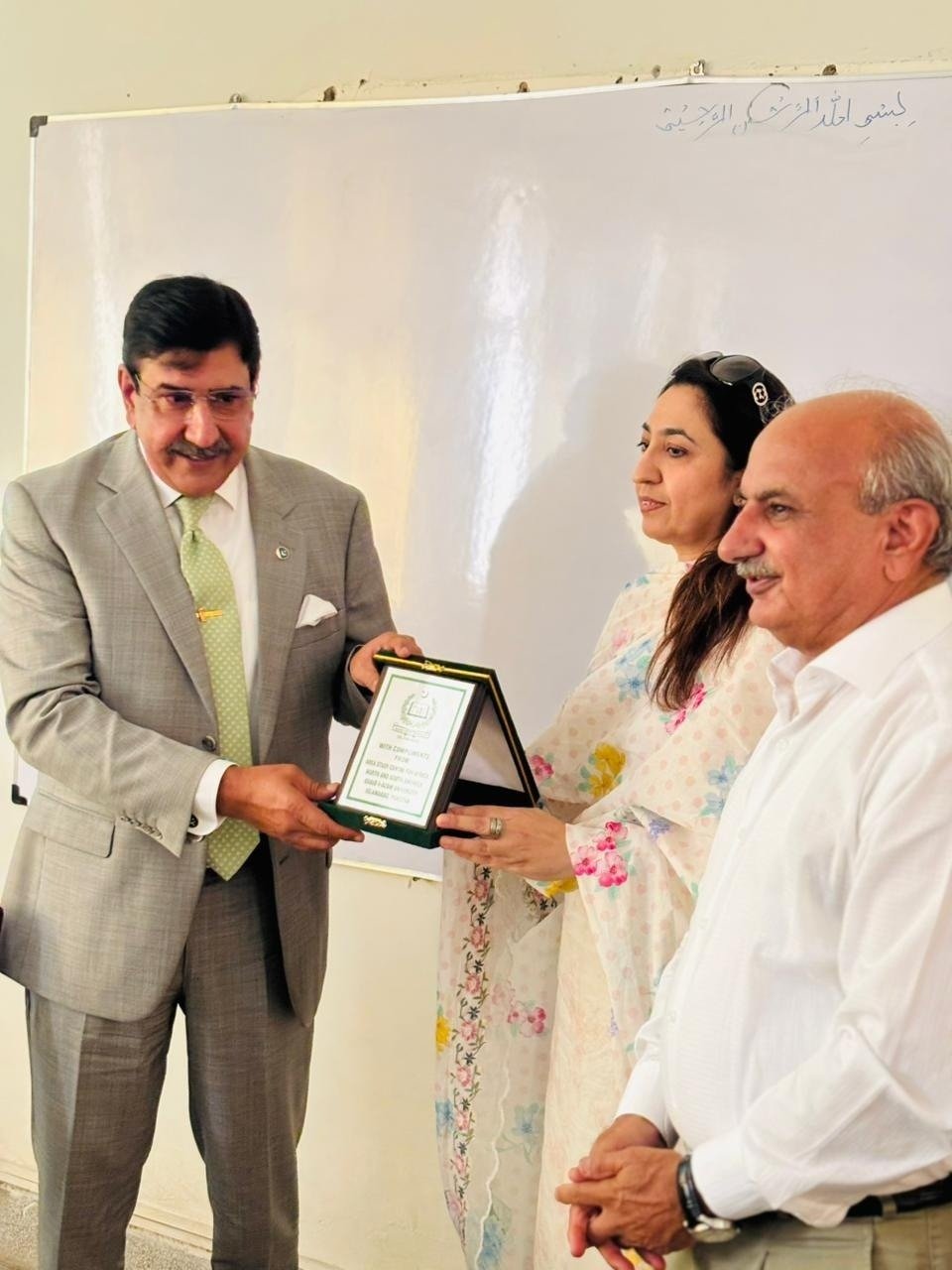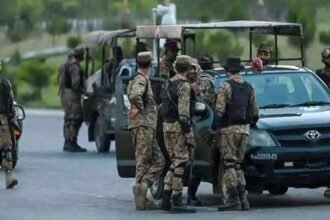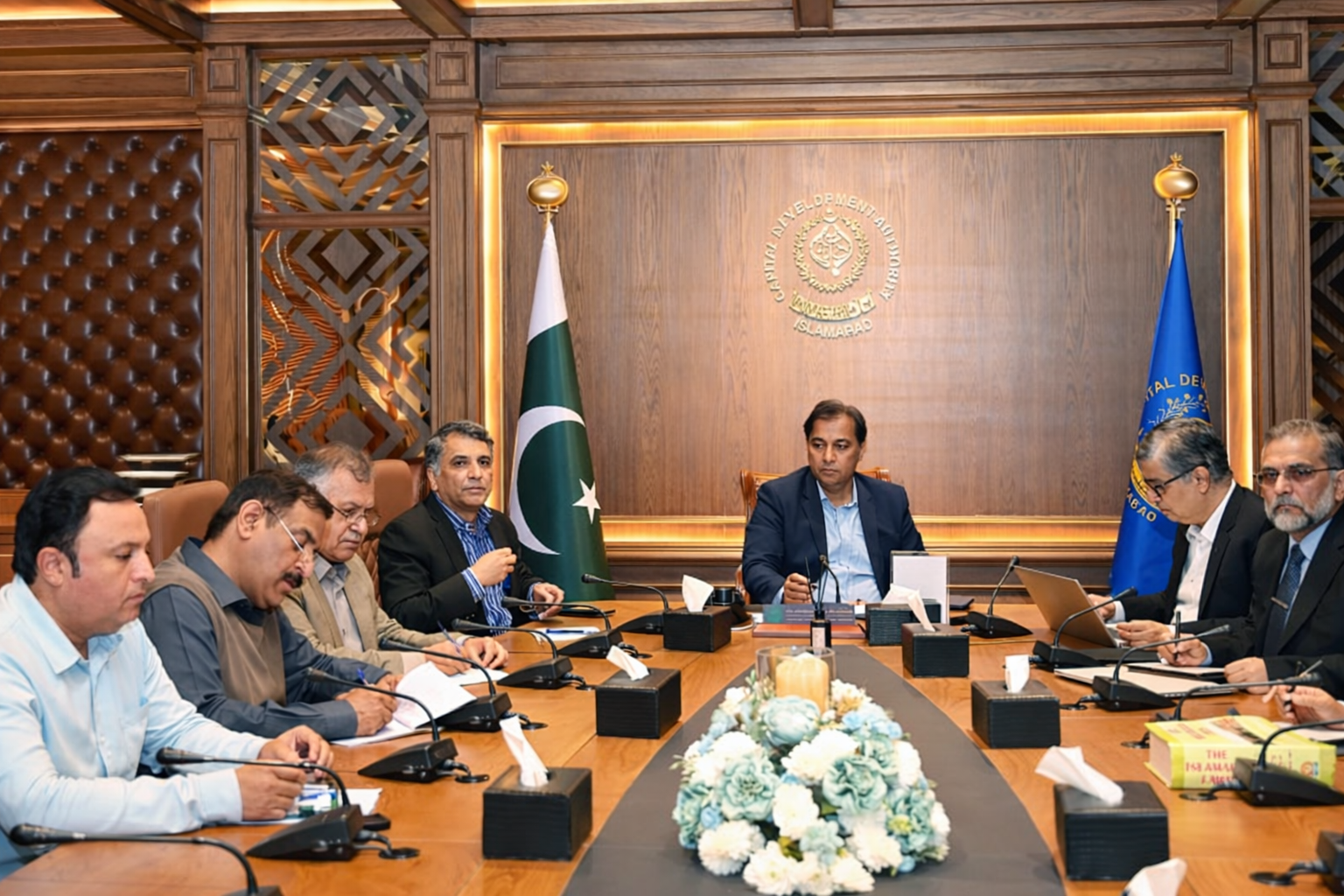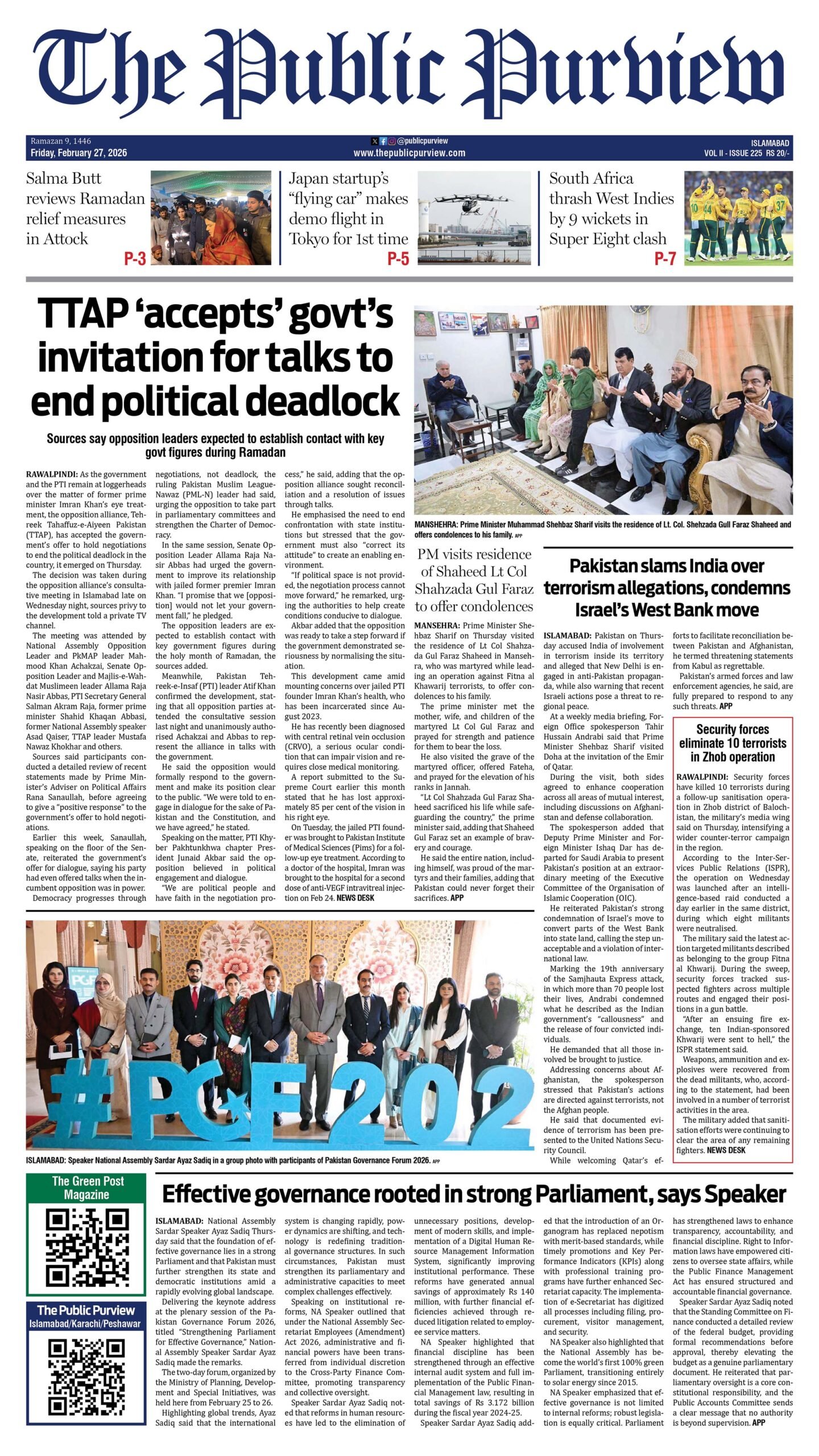ISLAMABAD – In a gathering charged with urgency and resolve, Quaid-i-Azam University’s Area Study Centre (ASC) hosted a seminar titled “From Floods to Future: U.S.-Pakistan Climate Partnership” at Dr. Raees Ahmed Khan Hall. The event spotlighted climate diplomacy and emphasized the need for decisive climate action in Pakistan through international cooperation.
Lieutenant General (Retd.) Umar Mehmood Hayat, former Chairman of the National Disaster Management Authority (NDMA), delivered the keynote address. He traced Pakistan’s complex journey in disaster management, from the Civil Defence Act of 1952 to today’s institutional frameworks. Despite strong legislation, he noted that Pakistan struggles with chronic underfunding and a shortage of skilled personnel. These factors severely limit its ability to respond to climate emergencies.
General Hayat cited examples such as seasonal fires in the Margalla Hills, where NDMA’s resources are stretched thin. He stressed that even small-scale disasters expose systemic vulnerabilities. This, he said, underscores the urgency of reform and investment.
Turning to the global stage, he highlighted Pakistan’s unique position. Although the country contributes minimally to global greenhouse gas emissions, it remains highly vulnerable to climate shocks—floods, erratic monsoons, and rising temperatures. Sandwiched between China and India, two of the world’s largest emitters, Pakistan’s call for robust climate partnerships is more critical than ever.
He emphasized that climate action in Pakistan cannot succeed in isolation. While expressing caution about alliances with nations where climate change is politically divisive, he pointed to promising U.S.-Pakistan collaborations in the mineral and mining sectors. These, he said, could evolve into broader, greener partnerships.
One of the seminar’s most compelling moments came when General Hayat discussed disaster diplomacy. Despite recent tensions, Pakistan and India have maintained communication channels for disaster response. This stands as a rare example of humanitarian cooperation transcending political divides.
During the Q&A session, participants called for NDMA’s de-securitization and a shift from reactive crisis response to proactive disaster prevention. The consensus was clear: Pakistan must anticipate climate threats, not merely react to them.
General Hayat closed with a powerful reminder: “There is no Plan B because there is no Planet B.” His message reinforced the need for bold leadership, sustained commitment, and global solidarity. Only then can climate action in Pakistan become both effective and enduring.
As the seminar concluded, the takeaway was unmistakable. The path from floods to a sustainable future requires more than dialogue—it demands coordinated, courageous action. The time to act is now.







 Today's E-Paper
Today's E-Paper